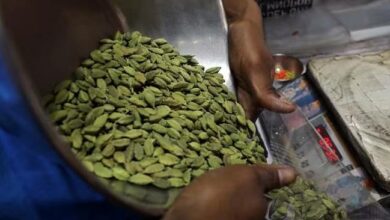Kerala Faces Unprecedented Heatwave: Temperature Soars, Prompting Concerns and Precautions

In an unusual turn of events, Kerala is grappling with an unexpected and intense heatwave, with temperatures rising significantly ahead of the typical summer season. With almost ten days remaining for the official onset of summer, the state is experiencing soaring temperatures, particularly in regions like Kannur, which has recorded the highest temperature in the country for nine consecutive days.
Typically, summer temperatures in Kerala average around 36 degrees Celsius in March. However, this year has seen the mercury crossing 27 degrees in Kannur in February, signaling an early and extreme heatwave. The forecast suggests that the temperature may reach up to 38 degrees in Kozhikode, with other districts, including Thiruvananthapuram, also expected to face high temperatures.
Climate experts express concerns about the potential health hazards, including heatstroke and heatwaves, as the temperature continues to rise. The increased heat poses risks to agriculture, livelihoods, and public health. Sectors such as poultry and goat rearing are anticipated to face disruptions due to the extreme summer conditions. Additionally, the lack of summer rain can exacerbate the situation, increasing the likelihood of sunstrokes and other heat-related illnesses.
The Meteorological Department estimates the possibility of a temperature increase of up to four degrees, which could lead to heatwave conditions. Heatwaves pose a severe threat, affecting public health, agriculture, and overall well-being. The impact is evident in disruptions to daily life, including agriculture, and the potential for increased cases of dehydration.
Kannur, having recorded the highest temperature in the country for an extended period, raises alarms about the urgent need for preventive measures and public awareness. The local authorities and government are urged to take swift action to address the emerging challenges, including providing free access to water, liquid nourishment, and creating awareness about preventive measures.
The government should consider exemptions for physical labor during the afternoon, and hospitals need to be well-equipped to handle potential health crises arising from the extreme heat conditions. The situation calls for collaborative efforts between the government and the public to mitigate the impact of the heatwave and prepare for potential health-related issues and other challenges associated with the soaring temperatures.






